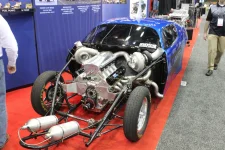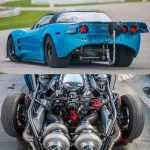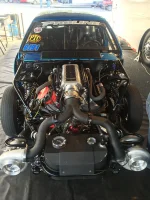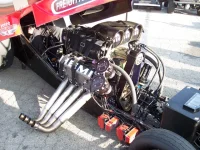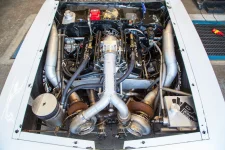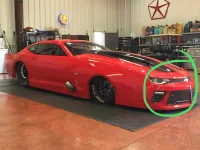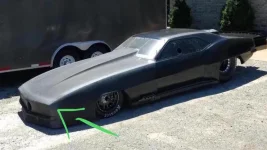Well yes you are correct it is an “increase” in temperature and pressure etc..due to the ideal gas law.. PV=nRT where N is the molecular weight of your gas and R is a constant. They can be erased and you have PV=T.
This'll be pretty simplified, but hopefully gets the basic point across.
First, it's not so much the
pressure that causes things to heat up, but the compression. So we can just imagine taking a container of gas and compressing it.
- The temperature of a gas is proportional to the average kinetic energy of the gas molecules. That means that the hotter something is, the faster the particles are moving. We're just talking about the "internal" motion of the gas, here -- if there's a current or wind flowing through it, we ignore that. Temperature is more about the molecules jiggling around or bouncing back and forth.
- When you push on a particle, it gains energy, i.e. it starts moving faster.
- If I have a container of gas and start compressing it, I necessarily have to push inwards. This pushes on the molecules in the container, and therefore... makes them move faster. We are putting energy into the gas (this is called doing work.)
- But the gas itself isn't going anywhere, it's contained. So it's the internal energy that's increasing. Assuming nothing weird happens as the gas gets denser, that means that the temperature is increasing.
So in a way youre right but in a way ypu are wrong. Because the average outlet temp from a compressor system is known to be any where from 180/350 degrees F. So yes it doesnt matter if your smbient temps are 35 or 105 that charge air is coming out at at least 200. Now where does ambient air come into play? With aftercooling. A good A2A
intercooler will get you down to within 10 degrees of ambient. The intake air temp means nothing really. Any good race car will use a A2L or evaporating gas cooling system, which will give you lower than ambient charge air temps. Again for FI cars it doesn't really matter.
All hot air does is increase the chances of detonation which will cause the timing to be reduced heavily. You make more power by burning more fuel, that requires more air. Pretty simple..lol
The F1 intake plays many rolls. I wish it was just for sucking in air!! Its not at all.. its feeding air to the , intercoolers, other heat exchangers, it is a structural part to prevent driver injury in roll overs, it is a huge aerodynamic part trying not to steal air from the rear wing..etc..etc.. no it is not sealed at all and the “blowby” that is seen when they let off the throttle is huge. That scattered air seriously effects aerodynamics.
Another misconception is that of “ram air” no car race or not travels at speeds high enough to have a ram air effect. You cant achieve forward momentum great enough to overcome the amount the engine is sucking in.. so at WOT flying down the track, no air is being forced into the engine, the emgine is just sucking in everything delivered to it. No blowby, no bad air. Only a small amount if that air is going to the turbo. Most is going to the intercoolers, brakes, and hybrid system. We will see charge air tempts about 10 degrees above ambient. Only supersonic speeds show Ram effects, and then the problem becomes slowing intake air not ramming more.
Trust me guys its a lot more complicated than you think. And most have no idea the science behind real thermo. Does colder air contain more oxygen? Yes, will it increase the specific output of an engine? Yes.. but ONLY IF YOUR Ecu can compensate the timing fast enough to advance it more. The point of my whole post was how much is 1 or 2 hp worth to you?? To me its not worth hundreds of dollars. You believe what you want. Just remember i stand to make no money off any of you, but that intake company does..





